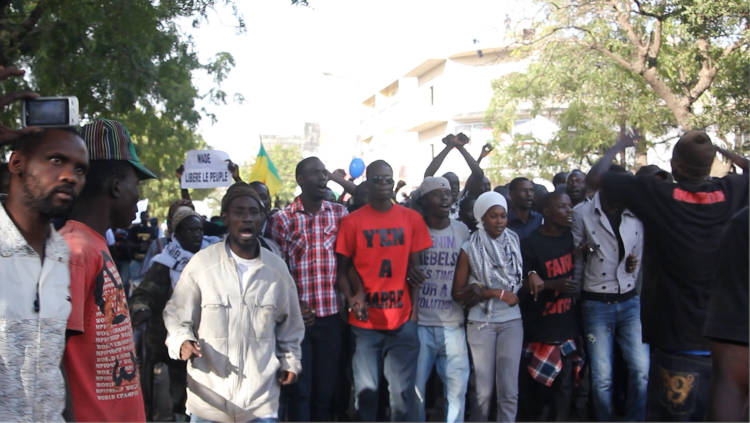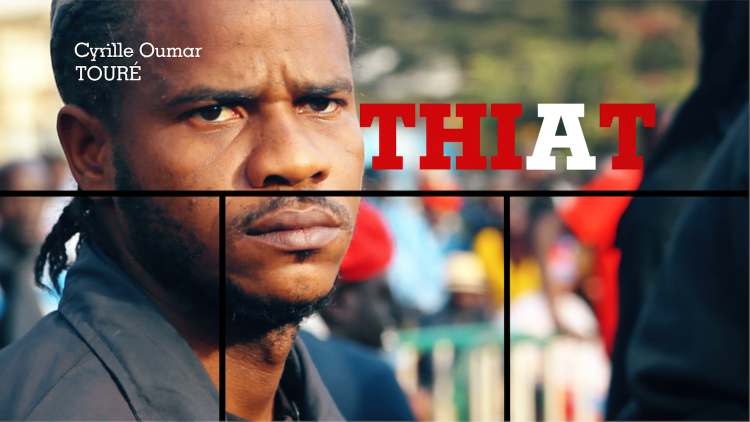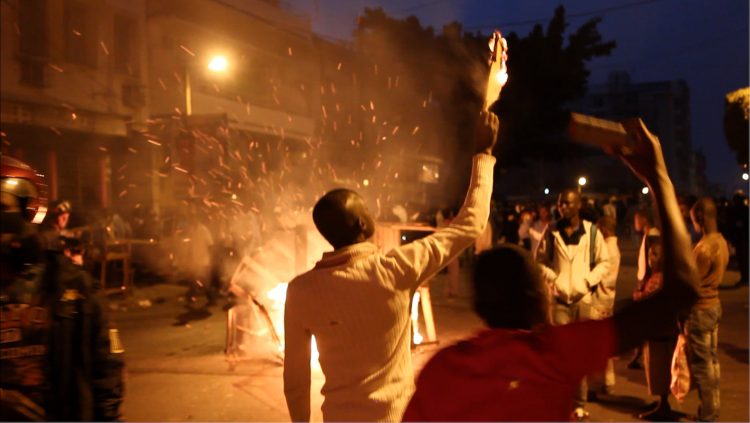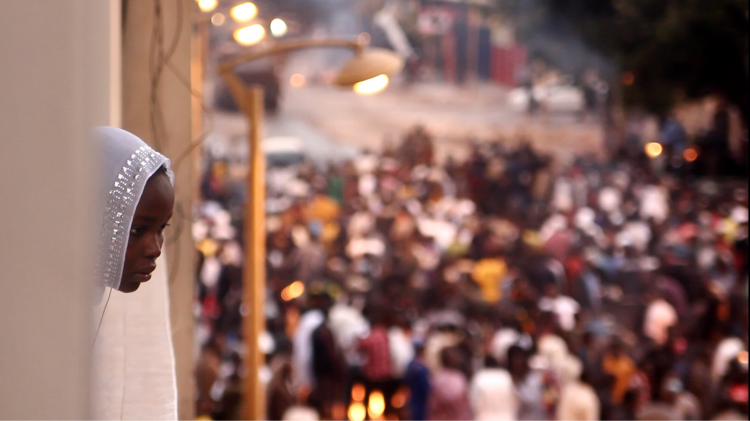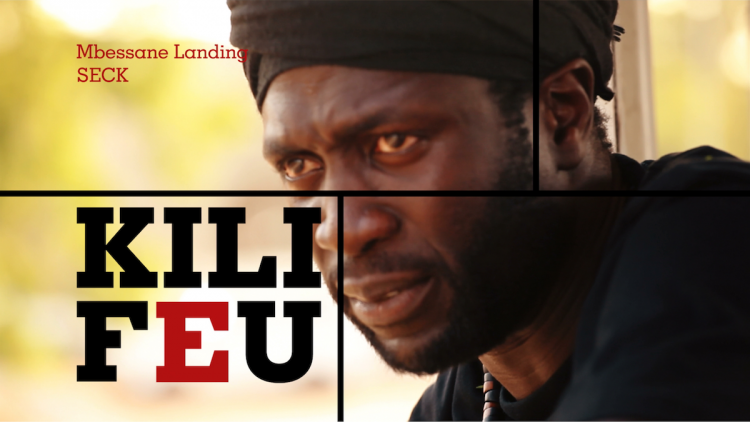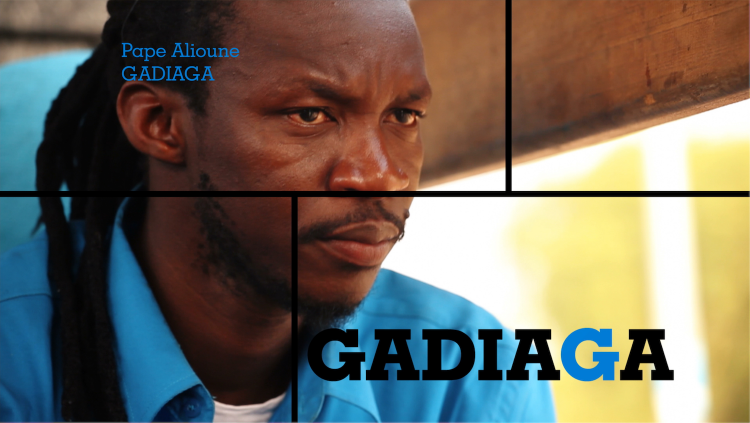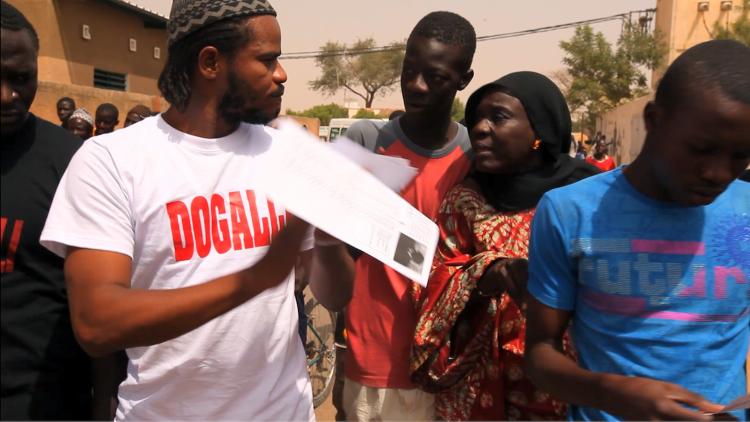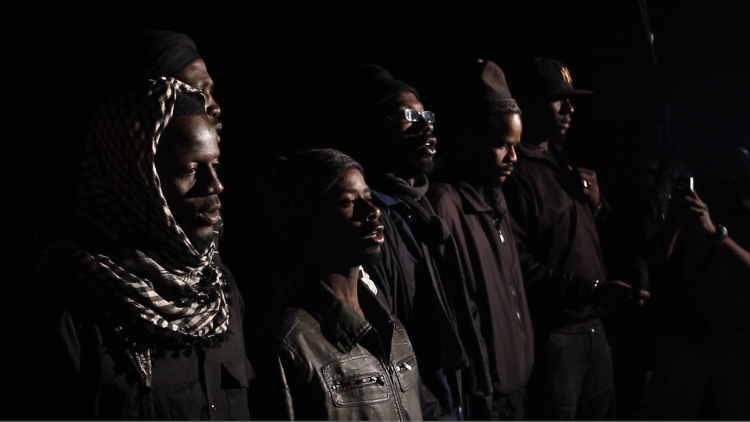When I met Rama Thiaw at the documentary festival Hot Docs in Toronto in 2013, she was still working on the post-production of her documentary The Revolution Won’t Be Televised. When I heard the pitch and saw a couple of images, I knew straight away that once it was completed, this documentary would take the world by surprise and tour the world.
After a very successful premiere in Berlin, the journey is only starting for this testimony of a historical moment where the people of Senegal had enough from an oppressive regime and took a decision to revolt against it by the most beautiful way: music!
‘The revolution won’t be televised is a lesson of peaceful revolution through music. A lesson to Africa. A lesson to the world.’ Rama Thiaw
Director Rama took out a few hours from her very busy schedule to give us an insight to her documentary and to the movement of Y’en a marre (we are fed up). This movement that was created by the Keur Gui band, three musician friends, Thiat, Kilifeu and Gadiaga and ended up being one of the most important pages in Senegalese history.
Tell me a little about yourself?
I was born in 1978. I am half Senegalese and half Mauritanian. After studying economics in La Sorbonne in Paris, I did a master in cinema in Paris 8. I also love music, poetry and travels and I define myself first as a human being so the world is my country.
How did you get involved with this project the first day and did you know that it was going to be that big?
In the beginning, my aim was to do a documentary about the hip-hop band Keur Gui, because for me they embody what activism really means.
They were really committed to fight against their political struggle.
Three friends, three artists, three amazing talented individuals: Thiat, Kilifeu and Gadiaga. Beyond the music and most of all they were really committed to fight against their political struggle.
I started talking to them about the documentary project in 2009 and by 2010, I decided to start the shooting during the election period in 2012. I just knew, I had this strong intuition that they would do something huge against our former president Wade. Two months later after our agreement, they created Y’en A Marre. What followed, would define the history of Senegal forever.
How is it even possible to make such a revolution and change the whole political system in Senegal through music?
Here in Senegal and in Africa in general, the role of music is very different than the one it plays in the West. Outside of Africa music is mainly a hobby that people use to entertain themselves.
They all listen to hip hop and this is the new way they communicate.
Here in Senegal, you first have to understand that sixty five per cent of the population is aged less than thirty years old. They all listen to hip hop and this is the new way they communicate their struggles.
Culturally, we have always communicated our history through music. So it does play a very different social role than the one it plays in the West. So for me as a director, it was very important to talk about this specificity that the music and oral art in general are playing in my society.
What happened with Keur Gui and what they achieved is not only a historical moment in Senegal but it also talks about the specificities of African societies in general.
It even reached the most remote areas.
I remember when ex-president Wade illegally changed the constitution to stay in power, the lyrics of Keur Gui were able to inform the population about what was happening, and it even reached the most remote areas in the country. You can only achieve that through music.
And I hope that the people, who will see this documentary, will take this way, our way, as a positive proposition from Africa. A way to make change through peace. Through music and creativity.
What is the next step for ‘y’en a marre’ now?
For me, y’en a marre, is one of the most interesting examples of a positive revolution. A revolution that was successful in throwing dictatorship. One that involved the whole population and most importantly, that taught them to take responsibility within this process.
We can build a better world. We can do it all together.
I wish that now with the opportunity that is offered to this documentary to be shown all over the world, that people who feel oppressed will all get inspired and start believing that things can change. We can build a better world. We can do it all together. We can do it in a peaceful and beautiful way.
The revolution in Senegal hasn’t been televised, but as music never fails to go beyond boundaries, I hope that the message of this documentary will also be able to travel through the heart of the youth all over the world and that together we will build a better society. A society where music instead of arms would be our way to communicate and to make change.
The situation hasn’t changed much after the revolution. Is there a sense of failure for the people who were involved in this process?
I think that you got it wrong. The situation did change in Senegal. We got Wade out and it is true that the new president is trying to change the constitution to stay in place for as long as he can, but the process has started.
The people in Senegal saw what they could do. The civil society has witnessed the power that they have. They have witnessed the power of the people and there is no politician or president that can stop this movement. The sense of failure is an illusion that politicians want to grab into.
The people of Senegal won. They won their freedom.
However the reality is beyond this. The people of Senegal won. They won their freedom. No one in the world can get this back from them. The train is on its way and no one will be able to stop it.
Whatever it takes, we are marching towards a better Senegal. We are marching towards a better Africa. We are marching, we are rebuilding, and we are singing freedom.
This is not failure, it is just a work in progress and I am very optimistic about it. And most importantly, for once the positive example comes from Africa and not the other way around.
How do you see the Africa of tomorrow?
Africa has the youngest population in the world. We are full of potential. We are full of talent. We have many challenges to come through and we will make it.
We are here to influence, we are here to lead.
It is a very exciting time for my generation. I think that the Africa of tomorrow will play a leading role and we just have to come together in a more efficient way.
I think many good surprises are on their way. We are here to influence, we are here to lead and we are here to inspire. And as I said, we are marching and there is no way we will step back!
Follow Rama on Twitter @ramassita

